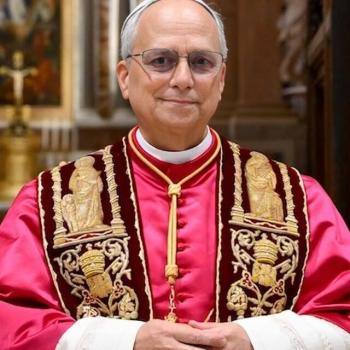Yet it is precisely through combining one of its anti-heroes with a screamingly-obvious "No One Acts That Way in Real Life" moment that the show produces its most interesting and insightful idea. Toward the end of Episode One, a drunken Durant delivers a strangely riveting, Fourth-Wall-breaking monologue on the need the world has for precisely his sort of man: men eager to dive in and get their hands dirty; men willing to do evil (and to be remembered for all eternity as evil-doers) for the sake of achieving an otherwise unattainable good.
One hundred years hence, when this railroad spans the continent, and America rises to become a power like no other the world has seen, I shall be remembered as a caitiff and a malefactor who operated only out of greed for personal gain.
All true. All true. But remember this: Without me and men like me, your glorious railroad would never be built.
My immediate reaction to Durant's words—unsurprising, given the relentless Silly Season in which we find ourselves—was to recognize its applicability to the political sphere. Yet his suggestion that we all want a little evil in our lives hits much closer to home than that. Abstractly, we are reluctant to say that "doing Evil is good, if Good will come from it," but recognizing how frequently and effortlessly we do it is far more painful than recognizing it in our publically-elected officials. Being insincere "for the sake of a little peace-and-quiet" when one's wife asks about her personal appearance; sneaking away from work early to spend "some quality time with the family (and football)"; overindulging at dessert "so as not to offend the hostess"—what is common in these and countless other cases is the willingness to embrace a minor evil for the sake of an obvious good.
Rather than rejecting the notions of good and evil altogether, we are making quantitative judgments about the "sum value" of a pair of conflicting actions: "Telling this lie to my boss is 41 percent Evil, but the ability to support my family that results from concealing my incompetence is 59 percent Good. That's a net gain of 18 percent GOOD!" That sort of judgment—the weighing of good and evil as if on opposite sides of a scale—ignores a fundamental truth: the gravity of a sin does not change the fact of its sinfulness.
Clearly, grave sin damages our relationship with God more deeply than "lesser" sin. Why else would the Church distinguish between mortally and venially sinful? But that distinction must not be seen as an authorization to commit venial sins, nor does it render the need to avoid any and all sin obsolete (1 John 3:1-10). While the gravity of an action might be quantitative, its intrinsic goodness or evilness is not. And if something is qualitatively evil, we must not do it, no matter what quantitative good depends on it.
We humans excel at convincing ourselves that intrinsically evil actions are either not truly evil or somehow do not apply to us. But only slightly less destructive is the ability to assure ourselves that "smallish" evil is acceptable if committed for the sake of some "larger" good. To build upon the paraphrased wisdom of Keyser Söze, while the Devil's greatest trick may be to persuade us that he does not exist, his greatest subversion is to convince us that he just wants to help.
Note: Season Two of "Hell on Wheels" is currently airing on AMC, and Season One is streaming on Netflix. Additionally, Seraphim Falls, the 2006 feature from David Von Ancken can be found on both Crackle and Amazon Prime. As one of "HoW's" executive producers and the director of half a dozen of its episodes, Von Ancken is responsible for many of the show's aesthetic and thematic material. Unsurprisingly, Seraphim Falls and "Hell on Wheels" explore strikingly similar themes.





